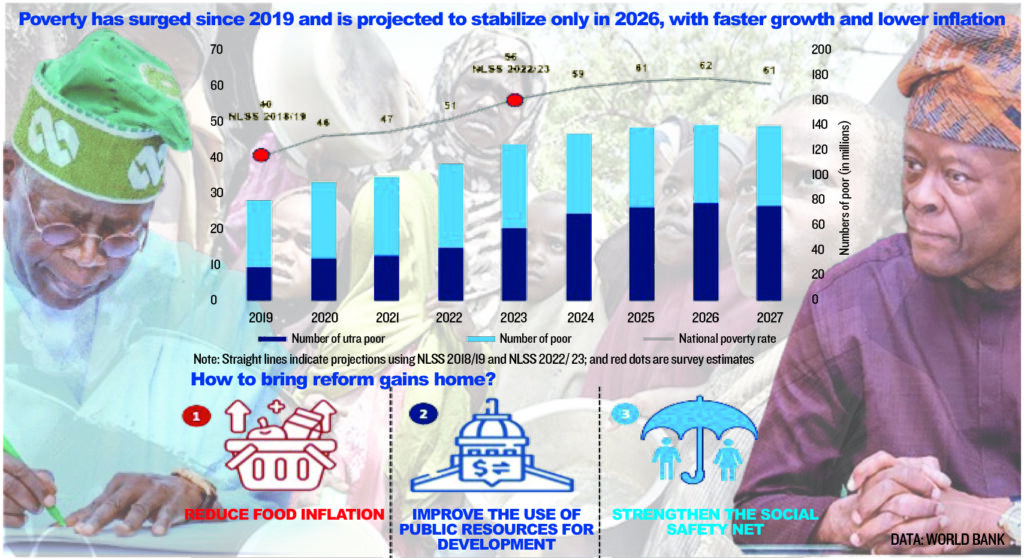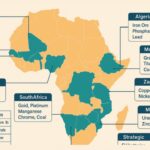Tackling rising food prices remains a major challenge in Nigeria, despite reforms designed to stabilize the economy, the World Bank said in its latest semi-annual report on the country.
The report, titled “From Policy to People: Bringing the Reform Gains Home,” notes that the current administration has carried out a series of reforms to improve key macroeconomic indicators, including foreign exchange reserves and the debt-to-GDP ratio. However, the outlook remains difficult for the poorest households, who have been hardest hit by soaring inflation.

The institution underlined the severe strain facing Africa’s most populous nation, noting that between 2019 and 2024, cumulative inflation measured by the Consumer Price Index for the Poor (CPI-FP) reached 406%. Over the same period, food inflation climbed 201%, while general inflation was 161%. As a result, basic food prices have more than doubled, severely eroding the purchasing power of vulnerable families.
Inflation’s Impact on the Poor
The gap is clearest in spending patterns: the bottom 10% of households by consumption level spend 70% of their total expenditure on food, compared to 57% for the top 10%.
Samer Matta, World Bank Senior Economist for Nigeria, stated, “Food inflation is the biggest tax on the poor.”
Faced with this situation, the report’s authors stressed the urgent need for measures to boost agricultural output and improve the affordability of staple foods.
Recommended actions include removing trade barriers such as import bans and “excessive” customs duties, and strengthening public and private investment in seeds, farm inputs, and critical infrastructure.
The report also highlighted major supply chain losses, noting: “Lack of adequate storage, cold-chain logistics, and reliable access to power also leads to high food losses. It is estimated that production losses amount to 76 percent for tomatoes, 25 percent for maize, and 34 percent for catfish.”
Containing food price increases remains a critical issue for Nigeria, especially as the number of people living below the poverty line is projected to reach 139 million this year, up from 81 million in 2019, according to the World Bank.
Cc: Espoir Olodo



